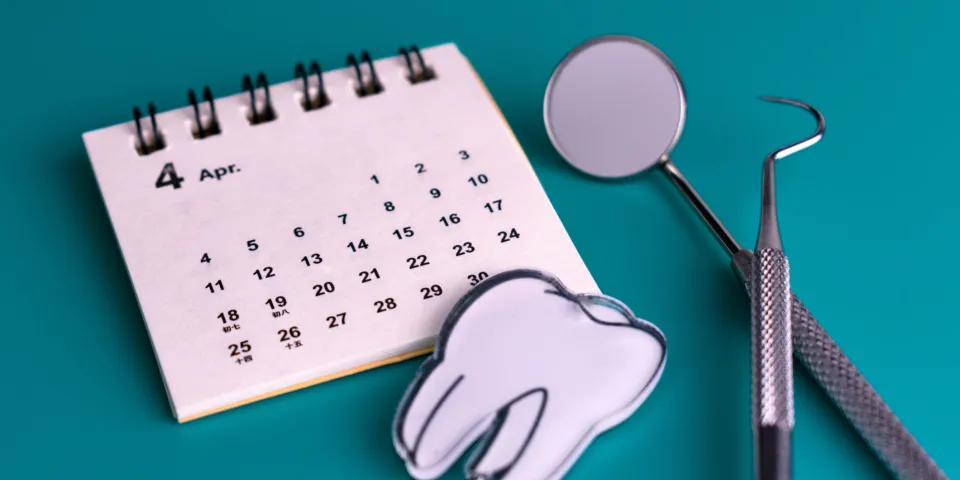Latest 
 Career Development Denise Alexander
Career Development Denise Alexander
Recent Blog Posts


For some dental hygiene students, their last semester means preparing for board exams and applying for their dental hygienist state license. From day one, everything you are doing is in preparation for this final step in your dental hygiene education. You may be asking yourself questions like:
Your dental hygiene board exams are a big step and one you are probably putting a lot of thought, time, and energy into. As a part of the dental hygiene program at Herzing University, students participate in a ‘Greenlight Project’. The Greenlight Project is designed to provide support and measure your readiness for your licensing exams. Upon the successful completion of the Greenlight Project and your dental hygiene program at Herzing University, you will be ready to take the National Board Dental Hygiene Exam (NBDHE), the Dental Hygiene ADEX, and the Minnesota Jurisprudence Exam — important final steps to becoming a Licensed Dental Hygienist (LDH) in Minnesota. You have trained and prepared for this big step and are ready!
According to the official NBDHE website, the National Board Dental Hygiene Examination is overseen by the Joint Commission on National Dental Examinations (JCNDE), an independent agency of the American Dental Association, in collaboration with the Department of Testing Services (DTS).
The NBDHE is offered as a litmus test covering functions that a dental hygienist is expected to be able to perform, ensuring dental hygiene graduates are qualified for state licensure. The exam is 350 questions and assesses the ability to understand the scientific basis for dental hygiene practice, discipline-based principles, and case-based items and apply them in a problem-solving context. The NBDHE is accepted in all states.
Even though you are well-equipped to pass your board exams, here are some tips to help you prepare:
As a dental hygiene student, you are sitting on a treasure trove of exam resources, and you probably didn’t know it! All your textbooks, PowerPoint presentations, class notes and study sessions are a great starting point for you to begin your exam. Many of the key aspects of your exam will be found in the course materials that you accumulated and learned throughout your education.
You will want to go through what information you have on hand and put it in an organized “board” notebook or computer file. Although your information may seem chaotic at first, it won’t always be that way if you consistently file the information that you need. So, remember, be glad every time you’ve completed a class, but don’t get rid of your books and notes! Find a safe, out-of-the-way space for them so that you can refer back as you prepare for your exams.
As a student, you already know your greatest strengths and weaknesses. Is pharmacology a breeze for you but you struggle with anatomy? As you begin to go through your notes, focus on the aspects of your education that you felt you struggled with the most or perhaps on what you have forgotten from your first semester of college.
Don’t neglect the areas that you excel in as well. Sometimes you can feel too familiar with a subject area that you accidentally forget a crucial fact or forget while cramming other topics. Going over these less intense areas can also provide a much-needed mental break as you prepare for the NBDHE.
As a part of the Greenlight Project in semesters seven and eight of the BSDH program, “post-tests” are completed. The post-tests are focused on classes already completed as part of your BSDH program. The purpose of re-testing is two-fold: through studying for the post-tests, you will bring this content to the forefront of your memory, which is a jump start on studying for the simulation exams and licensure exams and the post-tests will identify areas you need to revisit to fully prepare for the licensing exams.
Don’t just memorize information! It may be tempting to read through a ton of information and parrot it back like you would on a flashcard. Instead, you should be able to apply the information that you study to real-life scenarios. Even if you feel like you don’t have a key concept completely memorized, understanding the important facets is more critical to ensuring exam success.
As a part of the Dental Hygiene Board Review course (DH 420) and in alignment with the Greenlight Project, you will complete at least two simulated exams. These exams should be treated like the real exam. The simulated exams are comparable to the NBDHE and will provide you with insight into your readiness for the actual NBDHE. These are great in that you not only get a feel for what kind of questions you might expect on your exam but can also time yourself to practice for the exam itself.
While some books, online resources, and external practice tests may be useful, the NBDHE also offers practice tests intended to help candidates understand the types of questions that will be asked on the NBDHE certification exam. The practice tests can be purchased as individual modules or a full practice test. The full JCNDE NBDHE® Practice Tests contain samples of three discipline-based components and one case-based component covered in the actual exam.
It can be tempting to hyper-fixate on a specific question if you don’t know the answer. Of course, you would like to have the solution, but the truth is you aren’t always going to have the right answer at your fingertips. During the NBDHE, you can flag questions that you are struggling with. Move forward and come back to those more challenging questions later. Time needs to be your friend, so use what you can to go through the questions you can answer easily and dedicate the rest of the time to return and take on more difficult ones. And remember, it is more important that you answer the questions you do know the answer to rather than waste your time on a question where you don’t. An educated guess is still a valid answer. Before you arrive to take your NBDHE, be sure you review the exam schedule and understand the time provided for each section of the exam.
You may want to eat, sleep, and breathe your NBDHE before exam day, but the reality is that you will burn yourself out quickly. You want to be at your peak when exam day happens, not fighting to make it through. Make sure you balance studying with relaxation. Having a clear study technique can help you make the most of the time you have for studying while also setting aside time to unwind. There are many strategies for minimizing burnout including eating healthy, exercising, and getting enough quality rest.
Besides having the answers for the exam, you should know what to expect on exam day. What are you allowed to bring into the exam room? Where are you supposed to go? How long will it take? Should you bring food? Not only will you need to know these things in advance to get into the exam room, but you will feel more assured and prepared by knowing what to expect on the day of the exam. Reviewing the National Board Dental Hygiene Examination Candidate Guide will answer nearly all your questions. If you still have questions after reading the candidate guide, talk with those who have been there before, including the faculty and friends you’ve met at Herzing!
You will still have jitters going into the exam but being intentional and careful planning for your NBHDE can help you be successful. You’ve done the hardest part, now it’s just about showing what you’ve learned and why you’re ready to do incredible things in a career you’ve been working toward for years. Cross that finish line with confidence — you’ve made it!
BLS pay estimates calculate the median annual wage for various occupations. Per the BLS the median wage for an occupation is: "The wage at which half of the workers in the occupation earned more than that amount, and half earned less. Median wage data are from the BLS Occupational Employment and Wage Statistics survey." Bureau of Labor Statistics (BLS), U.S. Department of Labor, Occupational Outlook Handbook 2024. BLS median wage estimates do not represent entry-level wages and/or salaries. Multiple factors, including prior experience, age, geographic market in which you want to work, and degree level and field, will affect career outcomes, including starting salary and earnings as an experienced employee. Herzing neither represents that its graduates will earn the median salaries calculated by BLS for a particular job nor guarantees that graduation from its program will result in a job, promotion, particular wage or salary, or other career growth.
Get the latest news you need to know, from study hacks to interview tips to career advancement. Have it delivered right to your inbox biweekly.